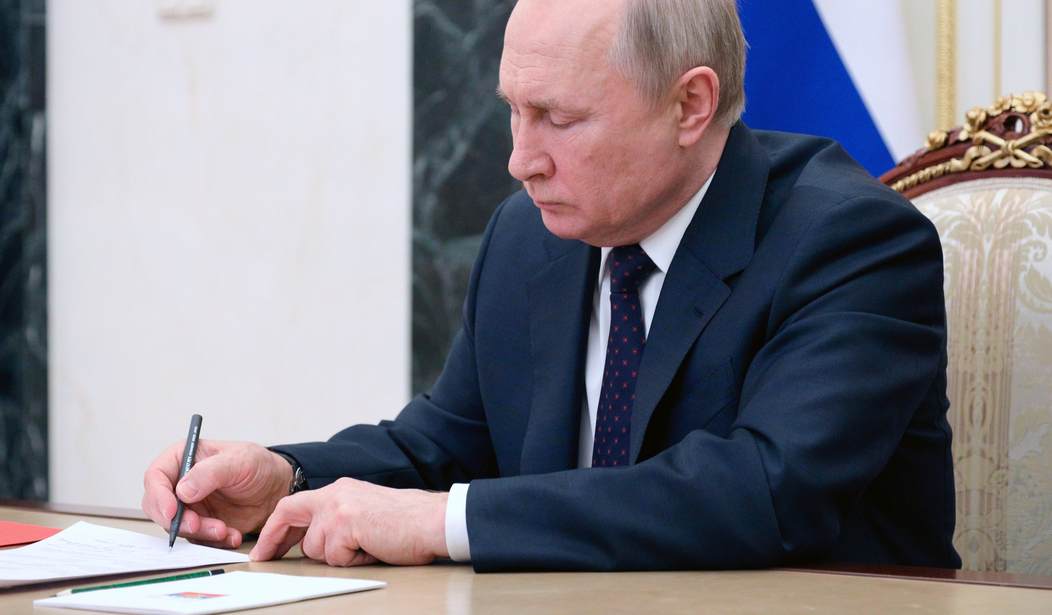A longer and possibly more accurate headline for this piece might be, “Russia may have already defaulted on its debt but we’re not sure because it’s… complicated.” There are a few things we do know for sure, however. Russia missed a major interest payment on some debt that it owes on May 27. There was a thirty-day grace period in place to allow them to make the payment, but that expired last night. Given the amount of Russian assets that are frozen in other countries because of sanctions, Moscow’s ability to move any cash around is definitely in question. Russia’s Finance Ministry claims that they can’t be considered to be in default and be penalized because they have the money to make the payments but are being prevented from accessing it by other countries. So are they in default or not? And if they are, what are the implications? The Associated Press published an explainer this weekend showing how this is all currently as clear as mud, but the global financial market isn’t about to collapse because of this. Or at least not yet.
Russia is poised to default on its foreign debt for the first time since the 1917 Bolshevik Revolution, further alienating the country from the global financial system following sanctions imposed over its war in Ukraine.
The country faces a Sunday night deadline to meet a 30-day grace period on interest payments originally due May 27. But it could take time to confirm a default.
“While there is a possibility that some magic could occur” and Russia gets the money through financial institutions to bondholders despite sanctions, “nobody’s making that bet,” said Jay S. Auslander, a top sovereign debt lawyer at the firm of Wilk Auslander in New York. “The overwhelming probability is they won’t be able to because no bank is going to move the money.”
Russian Finance Minister Anton Siluanov is insisting that any declared default would be “artificial” in nature. He said, “There is money and there is also the readiness to pay,”but continued to blame the situation on “an unfriendly country.” (That would be the United States for those of you who are keeping score at home.)
According to the AP analysis, if Russia continues to fail to make the pending interest payment, the result in the short term will likely be little to nothing. Most of the parties holding bonds from Russia already bailed out of that market when the sanctions were put in place. The rest most likely grabbed the bonds when they were at bargain-basement prices and are willing to ride this out for a while, hoping to cash in later if the war (and the sanctioning) ends and the bonds return to their former value. If they officially declare Russia to be in default now, they can potentially collect 25% of the value of the bonds from insurance policies, but then the insuring agencies will hold that debt in the hope of a future profit-taking exercise.
Russia currently owes approximately $40 billion in bonds, with half of that amount being owed to foreign interests. But Russia has roughly $640 billion in foreign currency and gold reserves that are frozen in foreign banks. Assuming the war eventually ends and the sanctions are lifted, they should be more than able to make good on the bonds. This may keep all of the players involved in this mess basically frozen for the time being.
Even in a worst-case scenario, if Russia’s financial structure collapses entirely and they go fully into default, $20 billion owed to foreign interests going up in smoke will be painful in individual interests, but it’s not enough to destabilize the global market. While I feel guilty to use the phrase yet again, $20 billion really just isn’t all that much money on a global scale.
This is very different than the forecasts of what would happen if the United States or China fully defaulted on their national debt. That would set off a catastrophic global economic collapse and cause the equivalent of the great depression around the world. Perhaps this incident with Russia could serve as a timely reminder of the fact that the United States’ national debt is continuing to skyrocket to previously unimaginable levels. We have to make our own payments on that debt on a regular basis. And the interest we have to pay is steadily growing as a percentage of the federal government’s revenue. This party can not and will not last forever, but nobody is ready to do a thing about it.








Join the conversation as a VIP Member